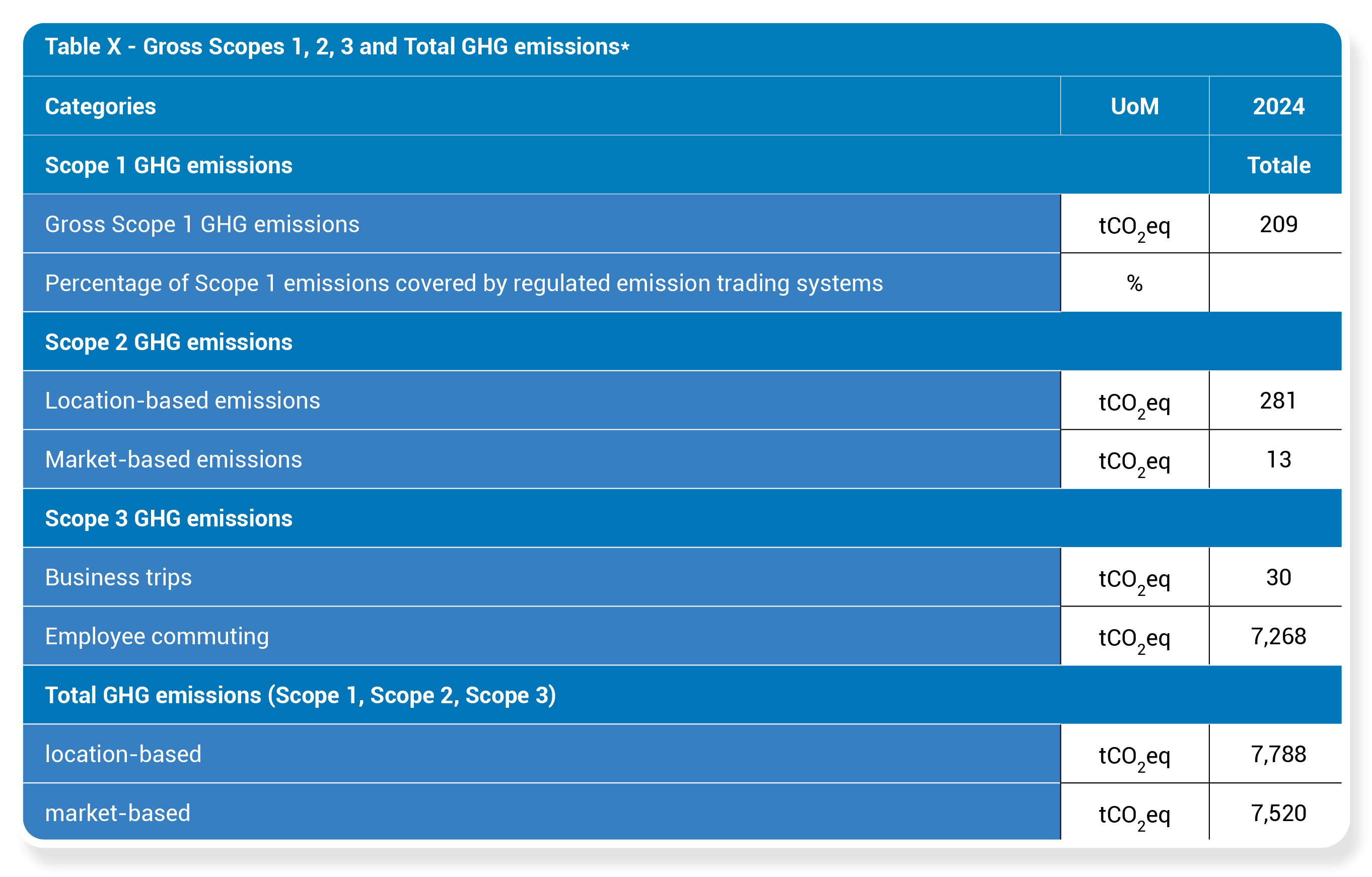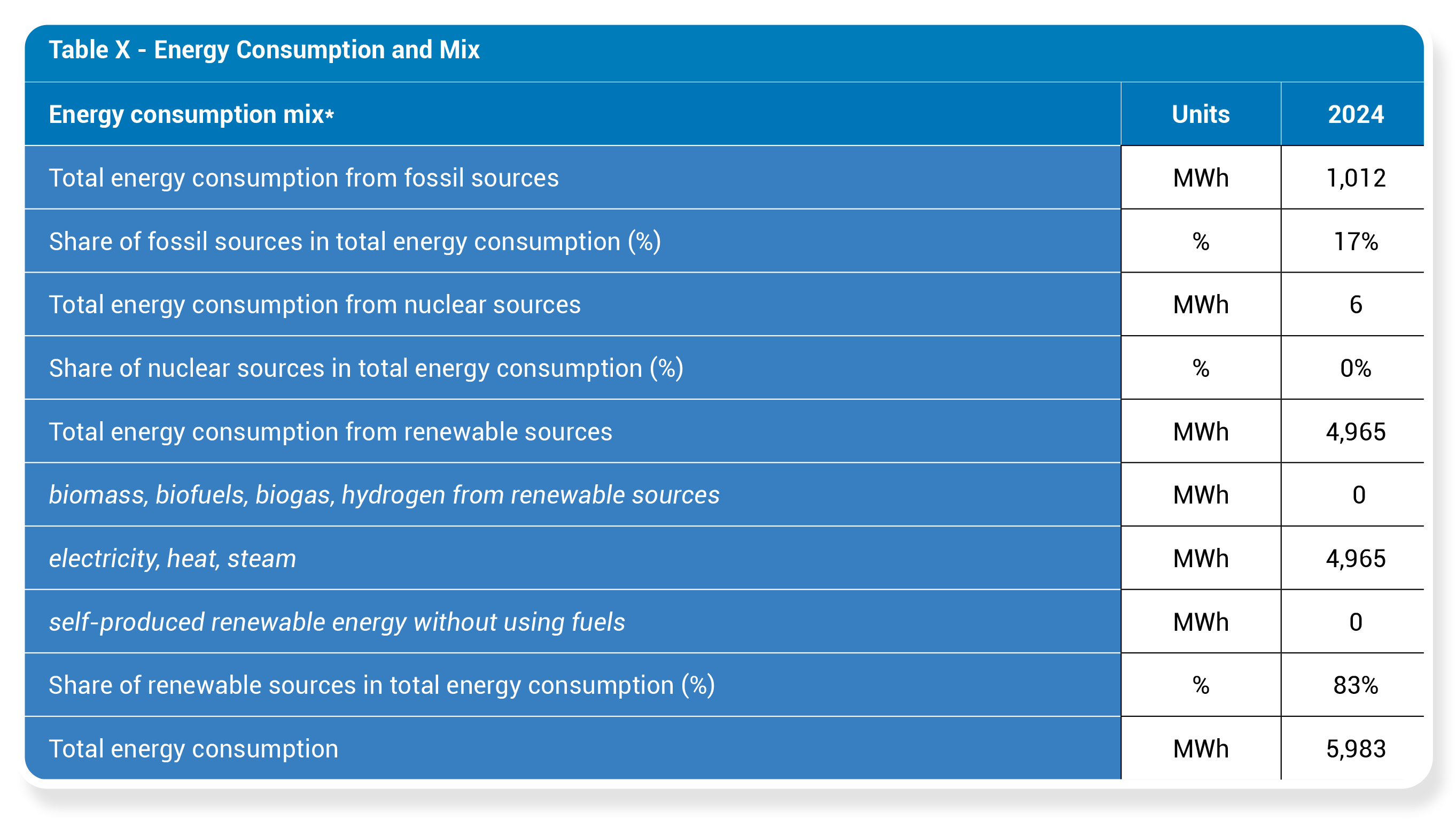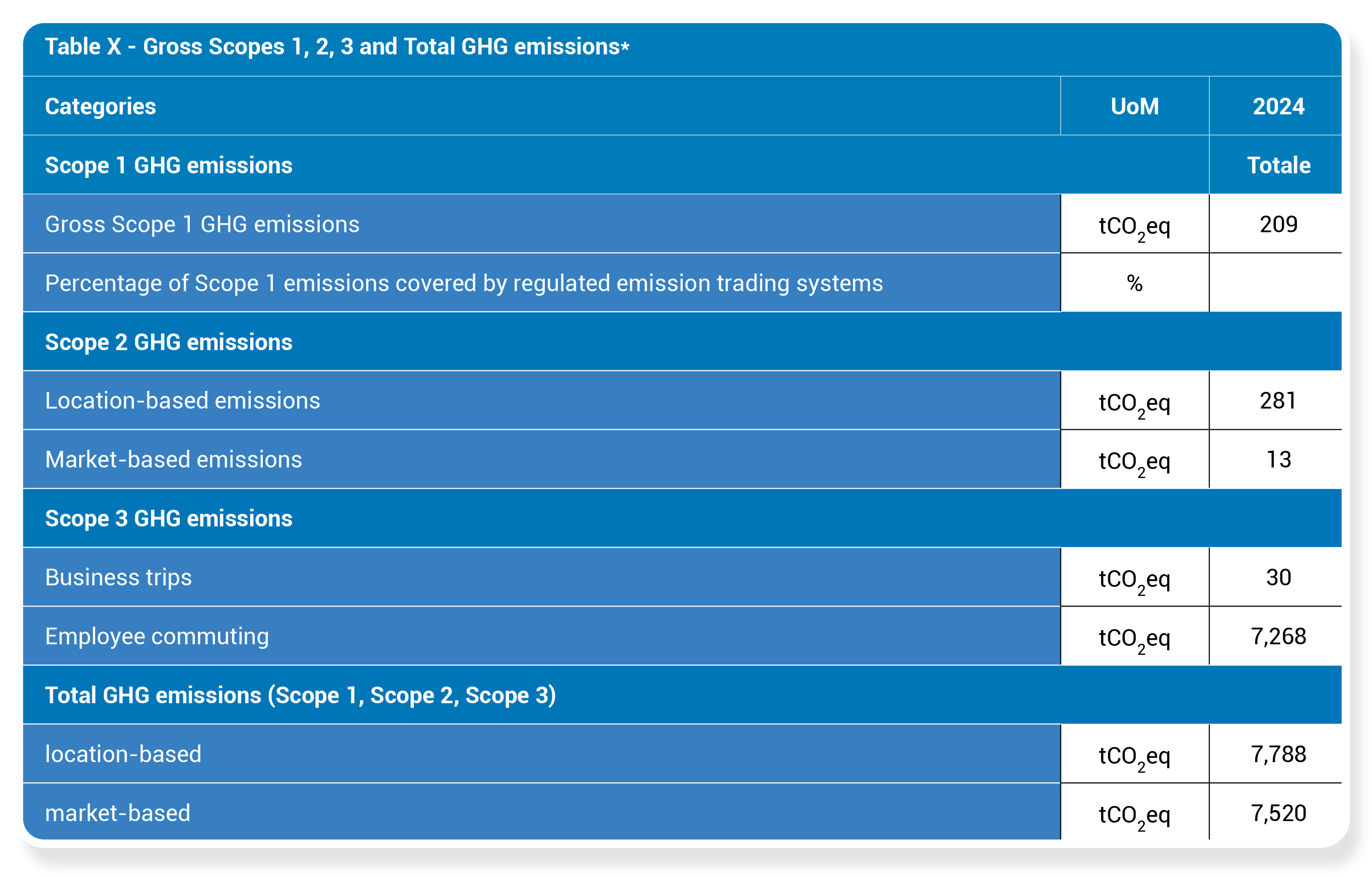The Group focuses on optimising and reducing consumption and atmospheric pollution as part of monitoring and containing energy consumption and emissions. In developing increasingly complete non- financial reporting in line with the best market practices, the doValue Group, since 2021, has enhanced its reporting on environmental issues by extending the calculation of some categories of Scope 3 emissions to the total scope.
The “other indirect GHG emissions (Scope 3),” as outlined by the GHG Protocol guidelines, refer to emissions from an organisation’s activities originating from sources not owned or controlled by the organisation. According to the principles of life cycle management, they comprise emissions both upstream and downstream of the services production and provision processes: a few significant examples are the emissions referring to the production associated with purchased materials, the fuel consumption of non-proprietary vehicles, end-use of products and services, consumption of waste decomposition processes.
The investigable universe of Scope 3 emissions is essentially quite vast and strongly influenced by the reference business, and as imagined, is more applicable to industrial and less “peopleoriented” business activities. Regarding this specific type of data, the processes that determine emissions relating to the provision of the Group’s predominantly intellectual services were therefore investigated, i.e., emissions deriving from business trips and travel by air and rail. The emissions reported relate to the entire perimeter of the Group, calculated using the fuel-based method. Emissions related to employee commuting are also reported for the first time, using a mix of distance- based and average data methodologies according to GHG Protocol Technical Guidance for Calculating Scope 3 Emissions.





